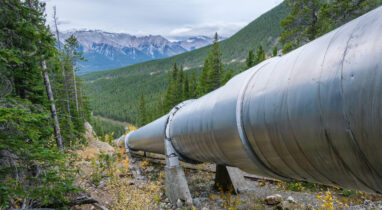Conservative Party of Canada leadership candidate Jean Charest today released a climate plan with a wide-ranging set of policy ideas. It’s a serious plan to reduce Canada’s greenhouse gas emissions that rightly acknowledges the cost-of-living pressures faced by Canadians. It’s also notable in the level of detail it offers at this stage of the party leadership campaign.
“Jean Charest has proposed a package of policies that have the potential to make real progress in reducing Canadian emissions this decade, if they’re implemented effectively,” said Clean Prosperity Executive Director Michael Bernstein. “While there are areas where the plan could be strengthened — for example, by adding a consumer carbon price — I’m impressed that it contains credible policies for reducing emissions across much of the economy.”
“Mr. Charest is like a general manager showing up to spring training with a plan to win the World Series. Even if there are gaps in his plan, it’s clear that he’s taking the challenge seriously.”
Importantly, Mr. Charest’s climate plan includes both an industrial carbon price, and measures to increase investor confidence in the durability of this cornerstone climate policy. Canadian businesses need carbon pricing guarantees in order to make major investments in decarbonization. Stable climate policy can help unlock billions of dollars in private-sector spending and create hundreds of thousands of good-paying jobs across Canada.
“Mr. Charest is like a general manager showing up to spring training with a plan to win the World Series. Even if there are gaps in his plan, it’s clear that he’s taking the challenge seriously.”
Clean Prosperity Executive Director Michael Bernstein
Mr. Charest has also proposed a range of other policies that could have a meaningful impact on emissions reduction, including strong support for carbon dioxide removal technologies, a zero-emissions Canadian electricity grid by 2035, and the use of border carbon adjustments to protect Canadian industry against unfair competition from jurisdictions with less ambitious climate policies.
Clean Prosperity believes that Mr. Charest’s plan would be significantly stronger if it included a revenue-neutral carbon price on fuels, to complement industrial pricing. A well-designed Conservative carbon pricing policy that’s focused on affordability for Canadian households would be the most cost-effective approach to tackling emissions right across the economy.
In addition, we hope Mr. Charest will offer further details about some of his climate commitments — such as specific plans for how to tackle building emissions, and clear targets on sales mandates for medium- and heavy-duty vehicles. Such details will be needed to fully evaluate his plan.
We also anticipate that Mr. Charest — and all candidates for leadership of the Conservative Party — will uphold the precedent of releasing independent energy-economy modelling that forecasts the potential impact of their policies in detail. Modelling is the best way to compare and evaluate policy proposals, and should be part of any climate plan.
It is critical that all federal political parties propose plans for Canada to achieve net-zero emissions in a way that generates jobs and economic growth. We believe that the Conservative leadership race is a perfect time to refine a Conservative vision for net-zero, and we hope other candidates will come forward with plans of their own. After all, Conservatives will need a credible climate plan if they hope to win government.




